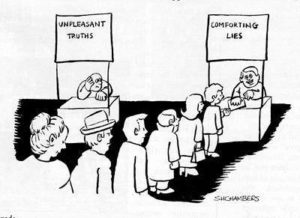Man’s Wife in the Bible
In the Bible, the concept of a man’s wife holds a significant place in various narratives. The Old Testament delves into the intricacies of sexual relations within marriage and the importance of upholding the sanctity of the marital bond. In cases of suspicion or alleged infidelity, the use of holy water, often known as bitter water in ancient Israel, was prescribed as a means of determining the innocence or guilt of the woman.
The scriptures provide insights into the consequences that befell a man’s wife if she was found unfaithful in her marriage. Adultery was viewed as a grave transgression, not only within the marital relationship itself but also in the eyes of the Lord God. The Bible sheds light on the severity with which such actions were judged and the repercussions that awaited those who strayed from the sacred commitments of marriage.
Sexual Relations in the Old Testament
In ancient Israel, the concept of sexual relations was deeply intertwined with religious beliefs and practices. One specific ritual that reflected this intersection was the use of bitter water to determine a woman’s fidelity to her own husband. The bitter water test, as outlined in the Old Testament, was a method of divine judgment where a suspected adulterous woman would be required to drink water mixed with dust from the Tabernacle floor. According to the scripture, if the woman had been unfaithful to her husband, her abdomen would swell, and her thigh would sag. This ritual not only served as a means of verification but also highlighted the severity of infidelity within the marital bond.
Additionally, sexual relations in the Old Testament were strictly governed by laws and regulations aimed at upholding the sanctity of marriage. Adultery, defined as a violation of the marriage covenant by engaging in sexual relations with someone other than one’s spouse, was considered a grave sin. The consequences for committing adultery were severe, often resulting in public condemnation and even death by stoning. The stringent laws surrounding sexual relations in the Old Testament underscored the importance of fidelity and loyalty within the marital relationship, emphasizing the significance of honoring the union between a husband and wife.
Holy Water and Bitter Water in Ancient Israel
In Ancient Israel, the Holy Water and Bitter Water rituals significantly determined a wife’s faithfulness. The process involved the priest administering a concoction of water mixed with dust from the tabernacle floor, which was called the Bitter Water, to the suspected unfaithful wife. This ritual was considered a means of divine judgment, where the truth of the woman’s fidelity would be revealed.
Moreover, the husband of the suspected unfaithful wife would bring her before the priest, who would then carry out the ceremony. During the ritual, the priest would have the woman hold a handful of the grain offering as a symbol of her accountability. The outcome of this solemn act was believed to be guided by the hand of God, unveiling the purity or guilt of the accused adulteress to the community.
Consequences for an Unfaithful Wife
When it comes to the act of adultery in the Bible, the consequences for an unfaithful wife are sternly addressed. The Lord God, as depicted in various bible verses, demonstrates a disapproval for such behavior. Adultery is viewed as a breach of trust and loyalty within the marital covenant, carrying serious repercussions for the individuals involved. The emotional turmoil and relational damage caused by unfaithfulness are highlighted as detrimental consequences that can result from straying from marital fidelity.
The scriptures outline the repercussions an unfaithful wife may face for her actions. The consequences of engaging in adultery are depicted as a violation of the foundational principles of faithfulness and commitment in marriage. The Lord God’s command on adulterous behavior is clear, emphasizing the importance of upholding the sanctity of marriage vows. The severity of the consequences for an unfaithful wife through the biblical context is underscored, emphasizing the significance of marital fidelity within the moral framework outlined in the scriptures.
The Act of Adultery in the Bible
The Bible portrays adultery as a grave transgression against the sacred covenant of marriage. Throughout its pages, the act of adultery is depicted as a betrayal of trust, a breaking of vows made before God and witnesses. Divorced women were especially vulnerable to societal judgment and condemnation if they engaged in adulterous affairs. The feelings of jealousy that accompany the discovery of an adulterous relationship are considered a natural human response, highlighting the deep emotional impact that such betrayal can have on individuals and relationships.
In biblical contexts, adultery is often not merely seen as a physical act but as a reflection of the spiritual and emotional state of a human being. It is portrayed as a violation not only of the marriage contract but also of the moral fabric of society. Through various stories and teachings, the Bible emphasizes the importance of faithfulness and the detrimental effects of adultery on individuals, families, and communities.
The Lord God’s View on Adultery
Adultery is a grave transgression in the eyes of the God of Israel, as it defies the sanctity of the marriage covenant. According to Biblical teachings, this act of infidelity not only causes harm to the individuals involved but also disrupts the divine order set by God for the union between a man and a woman. The Bible is clear in its message that those who engage in adultery will face consequences, both in this life and in the eternal life promised by the Kingdom of God.
The Lord God affirms the importance of faithfulness and commitment within marriage, emphasizing the bond between spouses as sacred and inviolable. Adultery not only leads to broken relationships but also has spiritual repercussions, as it goes against the very nature of the covenant of marriage established by God. The Bible underscores the severity of adultery and the need for repentance, highlighting the significance of upholding moral standards to lead a righteous life in accordance with the teachings of the Kingdom of God.
Bible Verses About Adulterous Women
In the Bible, there are references to adulterous women and the consequences they faced in such cases. The Old Testament outlines the severe repercussions for women who engaged in adultery, often resulting in punishments that reflected the gravity of their actions. These women risked not only their own soul but also the stability of their families and communities.
Conversely, the New Testament offers a perspective on adultery that emphasizes forgiveness and redemption. While the act of adultery is still condemned, there is a focus on the importance of repentance and seeking God’s grace. Adulterous women are encouraged to turn away from their sinful behavior and embrace a new path guided by faith and righteousness.
Divorced Women in the Scriptures
In the Scriptures, the Law of Moses addresses the matter of divorced women, offering regulations and guidelines for such situations. The issue of divorce was a contentious topic among religious leaders during that time, with differing interpretations on whether it was permissible or not. The Law of Moses provided some provisions for divorce, primarily due to the hardness of men’s hearts, acknowledging the complexities and challenges in marital relationships.
The topic of divorced women in the Scriptures brings to light the tension between personal choices and religious teachings. While the Law of Moses outlined certain procedures for divorce, it also emphasized the importance of commitment and faithfulness in marriage. The discussions surrounding divorced women revealed the delicate balance between human frailty and divine standards, prompting reflection on the complexities of human relationships and the need for empathy and understanding in such circumstances.
Feelings of Jealousy in Marriage
Feelings of jealousy in marriage are a common occurrence that transcends time and culture. In the Bible, jealousy is often associated with the relationship between God and His people. Like a fig tree producing fruit, jealousy can stem from a fear of losing something valuable or important. This emotion can arise in marriage when one perceives a threat to the lifelong commitment and trust shared with their partner. God’s command against jealousy may be rooted in the belief that such feelings can lead to destructive behaviors and harm relationships, just as consuming the wrong fruit from the tree can bring consequences.
The story of another man’s wife in the Bible illustrates the complexities of jealousy in marriage. When a spouse feels that their partner’s affections may be directed elsewhere, jealousy can surface, causing turmoil and distrust. In ancient times, the consequences for a wife committing adultery were severe, reflecting the seriousness of violating the marital bond. This tale sheds light on the fragility of trust and the emotional turmoil that can arise when one suspects betrayal in a marriage.
God’s Command on Adulterous Behavior
Adultery, the betrayal of sacred vows, is addressed in the Scriptures. The repercussions for such acts are highlighted extensively within the narrations. The olive oil, symbolizing consecration and purity, becomes a focal point in cases of suspected infidelity. In ancient times, a woman’s life and reputation hinged tremendously on the fidelity she upheld in her marriage. In the event of doubts or accusations, the bitter water ritual was carried out to ascertain her innocence or guilt. This ritual held significant weight in determining the course of a woman’s life.
In the context of adultery in the Bible, the repercussions were severe and long-lasting. The breach of marital commitment was not taken lightly, and the consequences extended far beyond the act itself. For a transgression as grave as infidelity, the ramifications endured for a long time, impacting not just the individuals involved but also the broader community. These narratives serve as cautionary tales, emphasizing the sanctity of marriage and the repercussions of straying from the path of fidelity.
The Law of Moses Regarding Adultery
In ancient Israel, the Law of Moses held severe consequences for those involved in acts of adultery. If a man suspected his wife of adultery, he could bring her before the priests for a ritual known as the “bitter water test.” This test was believed to reveal the truth behind the accusations. Such women faced the risk of public shame and even death if found guilty.
Additionally, the Law of Moses emphasized the sanctity of marriage by imposing strict penalties on individuals who committed adultery. Adultery was seen as a betrayal not only to one’s own spouse but also a transgression against God. The consequences for those who strayed from their marital vows were severe, highlighting the importance placed on fidelity and loyalty in marriage within the ancient Israelite society.
Consequences for an Adulterous Woman
An adulterous wife in the Bible faced severe consequences for her actions. According to the will of God, her transgression led to bitter suffering in various forms. The scriptures outline the punishment for such behavior, highlighting the gravity of adultery and the importance of upholding marital fidelity.
In ancient Israel, the consequences for an adulterous woman were strict and unforgiving. The gravity of her actions brought about harsh judgments, reflecting the seriousness with which the adultery was viewed. The repercussions of her betrayal would extend beyond her personal life, affecting the very fabric of the community and upholding the sanctity of marriage in the eyes of God.
The Kingdom of God and Adultery
The concept of the Kingdom of God places great emphasis on the sanctity of marriage and fidelity within it. Within the Bible, the adulterous woman is portrayed as a symbol of betrayal and unfaithfulness. The marriage bed is considered sacred in God’s eyes, and any violation of this trust is morally condemned.
In the Old Testament, the law of jealousy outlined in the book of Numbers provides a framework for dealing with suspected infidelity within a marriage. This law serves as a reminder that God values the commitment and loyalty between spouses and that adultery disrupts the harmony and trust essential for a healthy marriage. The Kingdom of God stands as a beacon of righteousness, striving for purity and faithfulness within the bonds of matrimony.
The Wife of Another Man in the Bible
In some biblical contexts, the notion of a woman being another man’s wife carries significant weight. It serves as a reminder of the sanctity of marriage and the repercussions of straying from the marital commitment. The act of a woman being married to one man and engaging in relations with another is viewed as a grave transgression. This act, referred to as adultery, is not taken lightly in these historical accounts, emphasizing the importance of faithfulness and commitment in one’s own lives.
In the Book of Ezekiel, there is a stark illustration of how seriously adultery is taken. It highlights the consequences faced by those who committeth adultery, showing that such actions are not without severe repercussions. In this narrative, the offering of a tenth of an ephah is used symbolically to portray the gravity of the offense. It underscores the severity of straying from the bounds of marriage and the importance of upholding the vows made in holy matrimony.
The Olive Oil in Adulterous Cases
In cases of suspected adultery involving a married woman in ancient Israel, the use of olive oil played a significant role in the ritualistic process outlined in the book of Numbers. The woman would be brought before the priest along with an offering of barley meal, but the unique aspect was the inclusion of olive oil in an earthen vessel. This symbolic act involving the olive oil demonstrated the gravity of the situation and the need for divine intervention to reveal the truth.
The priest would take the offering of barley meal and present it before the altar, while the olive oil in the earthen vessel served as a reminder of the sanctity of marriage and the consequences of straying from it. The use of olive oil in this ritual highlighted the importance of faithfulness within marriage and the role of divine justice in uncovering any wrongful actions. The ancient practice involving olive oil in cases of suspected adultery underscored the seriousness of the accusation and the need for transparency and resolution in matters of fidelity within marriage.
Unfaithful Wives
In conclusion, the stories of unfaithful wives in the Bible serve as powerful narratives that reveal complex human emotions, societal norms, and divine expectations. These tales, imbued with timeless lessons, provide us with a profound understanding of the challenges a divorced woman faces in a patriarchal society.
The concept of ‘hard heart,’ often associated with unfaithful wives, is deeply rooted in Jewish law and culture. It symbolizes obstinacy and resistance to change or repentance. This hard-heartedness, often attributed to unfaithful wives, reflects their unwillingness to adhere to marital fidelity. It’s a stark reminder of how personal choices can lead to destructive outcomes, not only affecting one’s life but also tarnishing the ‘good name’ of their families and communities.
These biblical accounts also highlight the sanctity of marriage. The phrase ‘own wife’ repeatedly emphasizes the exclusive bond between a husband and wife. Faithfulness is not merely an expectation but a sacred commitment within this bond. Unfaithfulness, therefore, is seen as a violation of this divine contract, leading to severe consequences under Jewish law.
Yet, amidst these tales of infidelity and betrayal, the Bible highlights the theme of ‘steadfast love.’ This steadfast love, often demonstrated by God towards sinners, is a beacon of hope for the unfaithful wives. Despite their transgressions, they are given opportunities for redemption and transformation. This steadfast love is a testament to God’s boundless mercy and compassion, offering solace and forgiveness even to those who have strayed.
The stories of unfaithful wives also confront the issue of ‘evil thoughts.’ These evil thoughts, often leading to actions of unfaithfulness, reflect the inner turmoil and moral dilemmas these women face. While their actions are condemned, these narratives also provoke empathy and understanding. They remind us that individuals are often products of their circumstances, and their misguided actions may stem from deep-seated pain and desperation.
In essence, the Bible’s portrayal of unfaithful wives serves as a mirror to our own flaws and weaknesses. It forces us to confront uncomfortable truths about human nature and societal expectations. Yet, it also offers hope, demonstrating that redemption is possible even for those who have lost their way. Even the most tarnished names can be restored through steadfast love and divine mercy, and the hardest of hearts can be softened. This enduring message resonates with readers, reminding us of our capacity for change, growth, and resilience.















